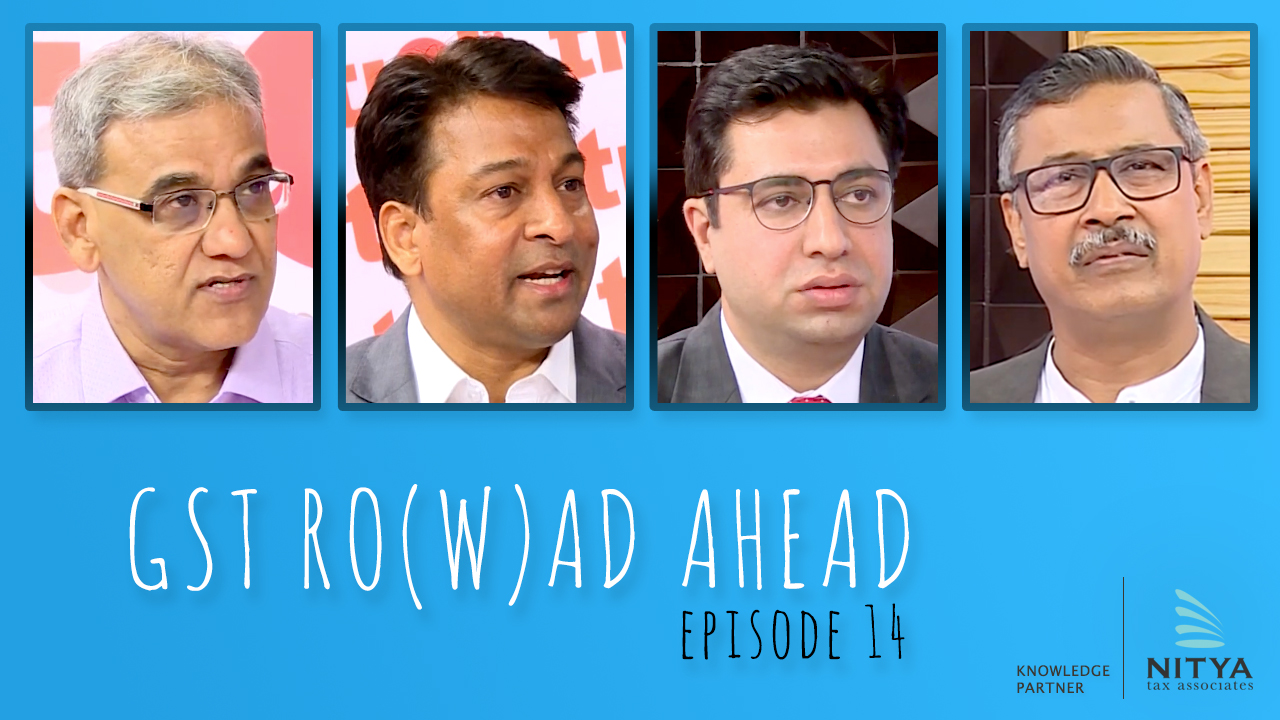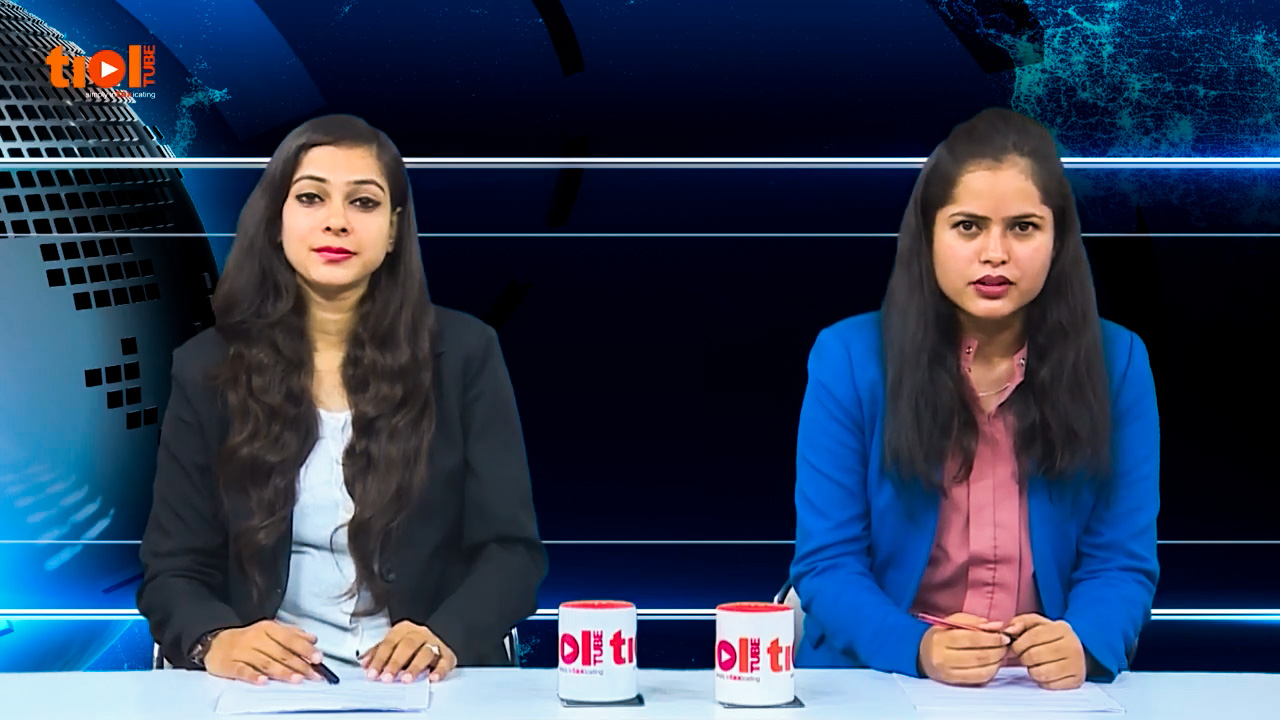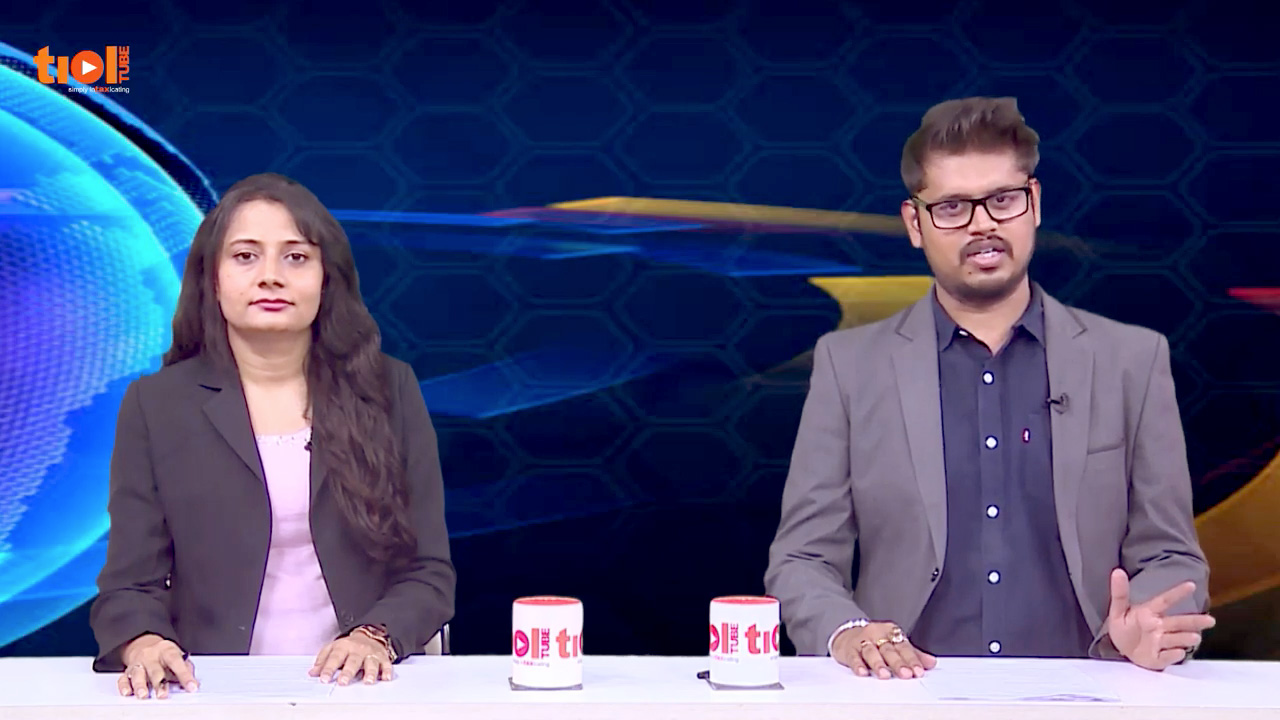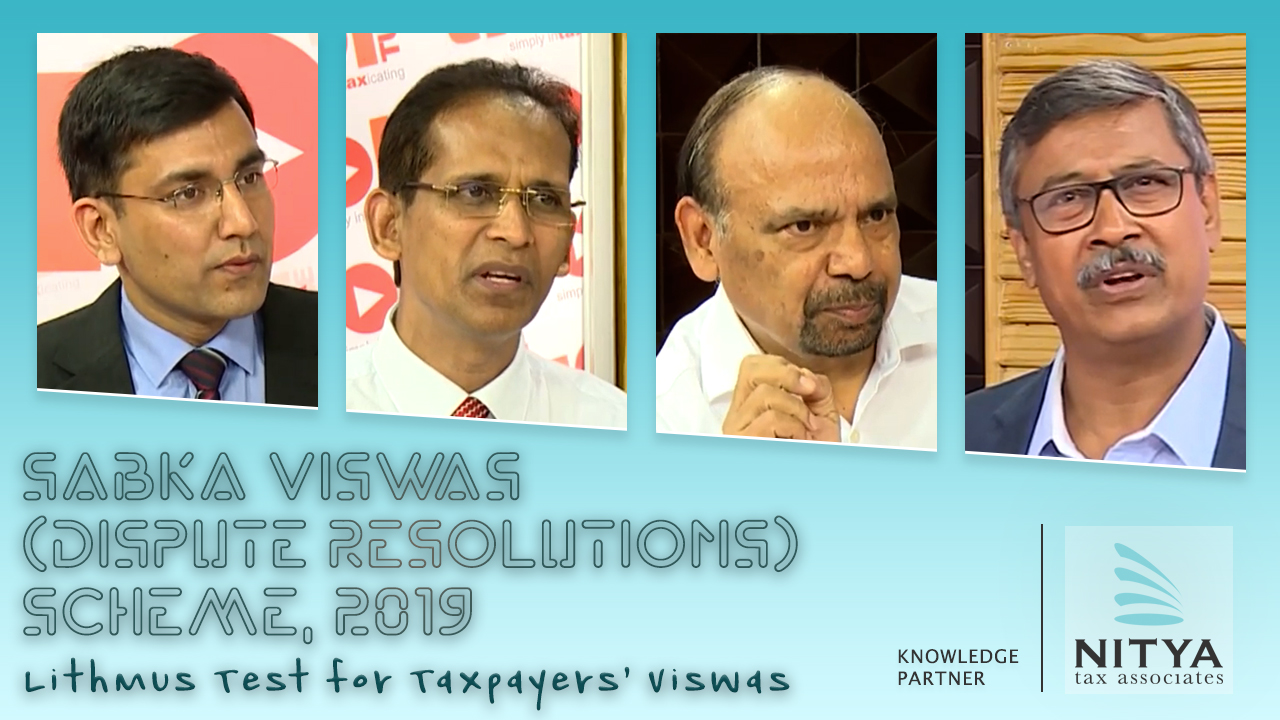|
SERVICE TAX 2019-TIOL-2735-CESTAT-MUM
John Deere India Pvt Ltd Vs CCE
ST - The issue arises for consideration is; whether the opening balance of Cenvat credit, at the beginning of the relevant period, can be claimed as refund as per Rule 5 of CCR, 2004 as prevalent during the relevant period and as to whether Cenvat can be denied on alleged technical defects in the invoices - The assessee have filed two refund claims for the period July 2012 to September 2012, in respect of their two premises under Rule 5 of CCR - The refund is subject to conditions of Notfn 27/2012 - The bone of contention between the Revenue and the assessee is on the use of words "net Cenvat Credit" and "relevant period" - Whereas the assessee plead that in view of the interpretation of the provisions of Cenvat Credit and Refund by various Courts and Tribunals and in view of the Circular issued by CBEC, a lenient view in favour of assessee needs to be taken by Revenue, the Revenue is of the opinion as far as there is no uncertainty in wordings of Rules and Notifications, there is no scope for liberal view can be taken - The definition of 'net Cenvat credit' uses only one "," before the word 'relevant period' - Therefore, the word 'relevant period' should necessarily apply to both 'net Cenvat credit' as well as the rebate refers to in Rule 3 (5C) - The Revenue have correctly placed reliance on Tribunal's decision in case Southern Rocks and Minerals Ltd - 2018-TIOL-2896-CEST-HYD, which was rendered in terms of Notfn 27/2012 - Following the ratio of said decision, quasijudicial authorities are not expected to traverse beyond the scope of established law and therefore, calculation of Net Cenvat Credit and thus eligible refund was in order - Assessee have submitted that while deciding the refund claims, the lower authority has dis-allowed certain credits without issuing a proper SCN and without hearing the contentions of assessee and some credits were not allowed on procedural issues - Such a denial is incorrect - It is not free for the authorities to deny Cenvat credit without giving an opportunity of being heard to assessee - Therefore, the issue is remanded to original authority for deciding the issue separately by following the principles of natural justice - Appeals allowed by way of remand to the extent of re-determination of inadmissible Cenvat credit: CESTAT
- Matter remanded: MUMBAI CESTAT
2019-TIOL-2734-CESTAT-MUM
SS Construction Vs CCE
ST - Appellant, during the relevant period from 2006-07 to 2008-09, rendered taxable services under the category of 'commercial and industrial construction service', 'manpower recruitment and supply service', etc. - on comparison of the balance sheet with that of their ST-3 Returns, it was found that the appellant had short paid ST - SCN issued - Tribunal, vide Order dated 20.9.2012, remanded the matter to the adjudicating authority for reconciliation of the figures in the balance-sheet with that of the ST-3 returns - on reconciliation, both the authorities below confirmed the demand issued earlier with interest and penalty - appeal to CESTAT.
Held: On remand by Tribunal, since the appellant had already earlier submitted the detail of profit and loss account, ledger, invoices, bills etc., they had placed the C.A. certificate in support of their claim for reconciliation of the figures between ST-3 returns and the balance-sheet - the authorities below rejected the C.A. certificate on the ground that the supporting documents were not enclosed along with the certificate - no justification found in the findings of the authorities below inasmuch as all the documents have been submitted by the appellant, the basis on which SCN was issued to the appellant, which is evident from the SCN itself - in these circumstances, rejection of the C.A. certificate for want of supporting documents, cannot be sustained - in the result, since the appellant is able to reconcile the differential figures between ST-3 returns and the balance sheet supported by the C.A. certificate, therefore, the impugned order is devoid of merit - accordingly, the impugned order is set aside and the appeal is allowed : CESTAT [para ]
- Appeal allowed: MUMBAI CESTAT
2019-TIOL-2733-CESTAT-HYD
Kalmarine Foods Pvt Ltd Vs CCE & ST
ST - The assessee is engaged in procuring export orders of shrimps as commission agents and hold service tax registration as commission agents under BAS - A SCN was issued to assessee after investigation and scrutiny of ledgers of assessee as it appeared to the department that an amount of Rs 13,48,436/-is liable to be recovered from assessee as service tax under the head of BAS and also GTA services availed by them - The Commissioner (A) has erred in sustaining the demand of Rs 70207/- as service tax on GTA inasmuch as the assessee has not availed services of independent GTAs but used railway cargo handling agencies and debited such charges in the profit and loss account - Therefore, the service tax demand as well as the demand of interest and consequential penalties are liable to be set aside - A perusal of SCN shows that it is the allegation in SCN that the assessee received goods transport services as a consignee/consignor towards transportation of goods by road by different GTAs and hence the demand - This demand was made based on the annual reports for the year 2004-05, 2005-06, 2006-07, and 2007-08 and statement dated 18.02.2009, ledger copies and debit notes in respect of export commissions and goods transports as well as based on assessment letters along with consignment notes - Assessee now pleads in the grounds of appeal that they have not availed the services of any GTA at all - However, this assertion is not substantiated by any evidence whatsoever in the appeal book - There is no merit in the appeal and the same is liable to rejected: CESTAT
- Appeal rejected: HYDERABAD CESTAT
CENTRAL EXCISE
2019-TIOL-2223-HC-RAJ-CX
Commissioner of CGST & CE Vs Dynamic Enterprises
CX - The assessee was issued SCN as to why service tax and dues should not levied with a penalty - The O-I-O was carried in appeal to the CESTAT - Various issues were framed i.e. cleaning of railway wagons, cleaning of railway buildings and premises, cleaning and housekeeping of railway running rooms and water tightening of wagons in monsoon seasons - The Tribunal was of the opinion that cleaning of railway wagons did not attract service tax liability however, it directed bifurcation of amounts determined, and claim towards cleaning of commercial / industrial buildings and railway premises - Having regard to the amount which is over all amount of Rs. 72,51,533/-, and the fact that even that amount has been directed to be bifurcated, this Court is of the opinion that the appeal falls within the mandatory limit prescribed by the circular dated 22/08/2019: HC - Appeal dismissed
: RAJASTHAN HIGH COURT
2019-TIOL-2732-CESTAT-MAD
Lucas TVS Ltd Vs CGST & CE
CX - Assessee is manufacturer of motor vehicle parts and accessories - It was found that assessee availed input services credit on renting of crates used for carrying of final products to the buyer's premises - The department was of the view that such credit is not available as the services were availed beyond the place of removal - The assessee has enclosed the invoices with regard to hiring charges paid on the crates - The service tax is paid for such hiring charges - The department seeks to deny the credit availed on service tax paid for hiring charges of crates - The crates have been hired by assessee for use in stacking of the motor vehicle parts, which are supplied to the customers - As per the definition of 'input services', the restriction to avail credit upto the place of removal is applicable only for outward transportation of goods - The input services availed by assessee is renting of crates and not for transportation of goods - The renting of crates has nothing to do with GTA Services and merely because the crates have been used for supply of the goods to the buyer's premises, it cannot be said that the renting of crates is not eligible for credit - The decision relied upon by assessee is in their favour where credit on the very same issue is allowed - The rejection of credit is unjustified - The impugned order is set aside: CESTAT
- Appeal allowed: CHENNAI CESTAT
2019-TIOL-2731-CESTAT-ALL
Hindustan Unilever Ltd Vs CCE & ST
CX - The assessee was engaged in manufacture of Toilet Soaps and were availing the benefit of Cenvat Credit of duty paid on various inputs as also on capital goods - Scrutiny of their records revealed that they had availed credit in their RG 23A Ptd.II - Whereas only 50% of the same was available in first financial year and the balance 50% was to be availed in subsequent financial year, assessee availed the entire credit in the first year itself - The assessee accepted the said mistake and the credit taken in RG 23A Pt.II was reversed by them by making a debit entry - Simultaneously, they also debited the said amount from their RG 23C Pt.II by the Debit Entry - Realizing their mistake that the said debit was not required to be debited in RG 23 A Pt.II they again took the credit of the same - They also took 50% of credit in their RG 23 C Pt.II in respect of the capital goods - All the debit/ credit entries made in respect of credit are required to be allowed so as to neutralize the situation - As such the confirmation of demand in question leading to denial of credit of duty paid on the capital goods is not justified - It is made clear that the assessee would get the credit of duty paid on the capital goods in accordance with law i.e. 50% in the first financial year and 50% in the subsequent financial year - Apart from that any excess credit availed is required to be reversed back and any excess debit made by them is required to be neutralized - Such exercise can be done by the Original Adjudicating Authority - As regards the confirmation of interest, assessee has made it clear that the credit, though availed, was not utilized by them and in terms of Karnataka High Court in case of Bill Forge Pvt. Ltd - 2011-TIOL-799-HC-KAR-CX, the excess unutilized credit would not call for any confirmation against assessee, same is accordingly set aside - As regards penalty, in the absence of any mala fide on the part of assessee, imposition of penalty upon them is not justified: CESTAT
- Appeal allowed: ALLAHABAD CESTAT
2019-TIOL-2730-CESTAT-AHM
Philips Electronics India Ltd Vs CCE & ST
CX - The assessee is manufacturer of Filaments Lamps and Fluorescent Lamps and its factories are at various locations including at Vadodara - They had its Corporate Office in Mumbai, Head Office at Gurgaon and Shared Service Centre (SSC) at Kolkata - The Said SSC was later on transferred to Chennai - The said SSC also pays service tax as a Recipient of services on reverse charge basis - The cenvat credit to the assessee was denied by adjudicating authority on the three grounds i.e. the assessee distributed cenvat credit as an ISD from Kolkata and Chennai prior to obtaining registration as an ISD; the invoices are deficient for want of ISD registration number, description of input services payment of the service tax by the service provider as required under Rule 4A of STR, 1994; some of the input services do not qualify under definition of input services - As regard, the first ground for denial of cenvat credit, the invoices along with attachment contain of the registration number of input service provider and there is a clear correlation with ISD invoices - There is no dispute that services in respect of which credit was passed on are duly service tax paid, there is no finding of the adjudication authority that the assessee have not used the services covered under ISD invoices in their factory - The only deficiency is that the ISD is not registered while issuing ISD invoices, the issue is settled that even though the credit by the head office is passed on to the manufacturing unit without having registration, only on this ground credit cannot be denied - Merely for the reason the invoices were issue by the ISD before registration, the credit cannot be denied - As regard, the second issue that ISD invoices were not contained the details as required under Rule 4A of STR, 1994, the relevant sub Rule in case of ISD is sub Rule (2) of Rule 4A - According to which the ISD invoices should contain the information was provided under Clause 1 to 4 - On the perusal of ISD invoices, that along with its attachment found that all the four details as required under sub-Rule 2 Clause (i) to (iv) are clearly mentioned in invoices and its attachment - The adjudicating authority has gone beyond the requirement mentioned in sub Rule (2) of Rule 4A and denied the credit on the ground that certain information as provided under Rule 4A(1) are not mention in ISD invoices - In this regard, on reading of Rule 4A, the details required under Clause (i) to (iv) of sub-Rule 4A(1) is required only for an invoice issued by a service provider and not by ISD, therefore, expecting information by adjudicating authority is without authority of any legal provision, therefore, on this ground also the credit cannot be denied - As regard, the ground for denial of credit on eligibility of input services, no such allegation was made in SCN - Only allegation was related to aforesaid two grounds for denial of credit - Hence, the admissibility of input services which was not raised in SCN, the adjudicating authority has no jurisdiction to decide an issue which was not available in the SCN, therefore, the impugned order on this count has clearly travelled beyond the scope of SCN - The assessee is entitled for cenvat credit on ISD invoices issued by their Head Office: CESTAT
- Assesse's appeals allowed: AHMEDABAD CESTAT
CUSTOMS
2019-TIOL-2729-CESTAT-AHM Metco Export International Vs CC
Cus - The assessee-company filed two shipping bills for exporting de-oiled mustard/rape seed oil & classified the same under CTH 23069021 of the Customs Tariff Act 1975 - Upon examination of the goods, the Revenue alleged that they did not conform to the description as declared in the shipping bill - Samples of the goods were drawn and were forwarded to the chemical examiner, who confirmed that the sample was od mustard/meal containing 0.48% & 0.65% oil - It was alleged that the assessee attempted to avail export benefit under Vishesh Krishi & Gram Udyog Yojana scheme - It was also alleged that the assessee mis-declared the goods with intent to avail VKGUY scheme, which was otherwise not available to the goods & so the goods were liable to be confiscated u/s 113(i) and (ii) of the Act - The exporter was also found liable to pay penalty u/s 114(iii) of the Act - The goods were seized & later released to the assessee upon execution of bond amount and bank guarantee - Upon investigation, summons were issued to the CHA and the exporter - It was confirmed that there was no export benefit under the VKGUY scheme for exporting mustard/meal & so the assessee waived the SCN - Later, the adjudicating authority directed confiscation of the goods, with option of redemption fone - Penalty was also imposed u/s 114(iii) - Hence the present appeal.
Held - It is seen that though the assessee wrote a letter waiving the SCN, the Revenue was supposed to issue SCN within 6 months and further period of 6 months as may be extended by the competent authority - The same is mandated u/s 110(ii) of the Act - Even though the assessee waived the SCN, the adjudicating authority should have adhered to the time limit as prescribed u/s 110(ii) and the proceedings should have been concluded within 6 months or 1 year, if extended - However, it is seen that the O-i-O was passed after 17 months - Besides, the High Court of Delhi in Shiv shakti Trading Company Vs. CCP also held that even though the assessee may have waived the SCN, the adjudication must be completed within reasonable period as per Section 110(ii) - Hence the O-i-O is quashed: CESTAT
- Assessee's appeal allowed: AHMEDABAD CESTAT
2019-TIOL-2728-CESTAT-AHM
Dhanlaxmi Pigments Pvt Ltd Vs CC
Cus - The case of department is that M/s Indian Potash Ltd has imported Urea by declaring agriculture grade, the said Urea was diverted to industrial user, accordingly, the condition of use of Urea for agriculture purpose was not fulfilled - Consequently, the exemption Notfn 12/12-CE is not admissible to M/s Indian Potash Ltd, accordingly, the demand of differential amount of CVD was raised - In case of one of the party Sh. Vijay Chandrakant Mulchandani, the matter was remanded to the adjudicating authority by Gujarat High Court vide order dated 27-28/11/2017 on the ground that the adjudicating authority has not granted cross examination of the witnesses - In these circumstances, the issue of cross examination in the case of Vijay Chandrakant Mulchandani will have bearing on the overall case as the department has relied upon the statements in case of Vijay Chandrakant Mulchandani also - Moreover, in case of other parties, assessee raised issue that the cross examinations of the witnesses were not allowed by the adjudicating authority - Therefore, taking observation of High Court and facts, the cross examination of witnesses is primary requirement for fair adjudication as per the statutory provision of Section 9D of Central Excise Act and pari-materia provision in Customs Act - In case of Indian Potash Ltd, the High Court vide order dated 06.12.2017 did not entertain the petition, however once on the issue of cross examination, the matter was remitted to the adjudicating authority which involves the same statements which were relied upon in other all cases, it is not just and proper to decide the case in piecemeal for the very simple reason that all the evidences including the various statements were relied upon for issuing the common SCN - Therefore, the entire matter needs to be reconsidered by the adjudicating authority after allowing the cross examination of various witnesses as requested by assessee: CESTAT
- Matter remanded: AHEDABAD CESTAT |
|








